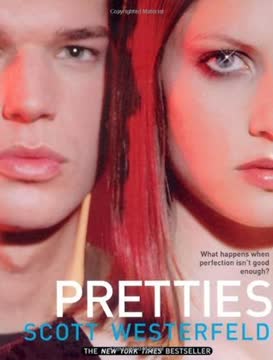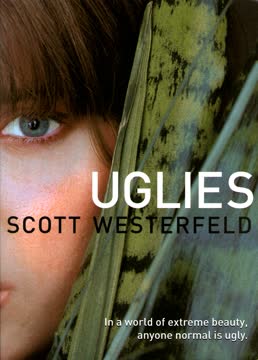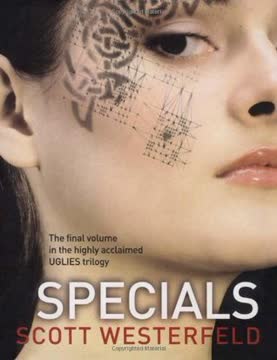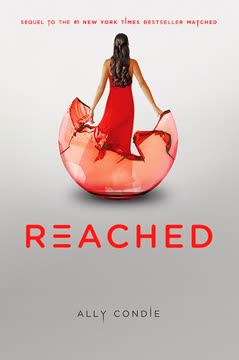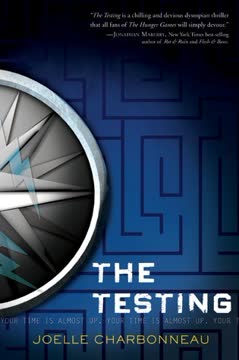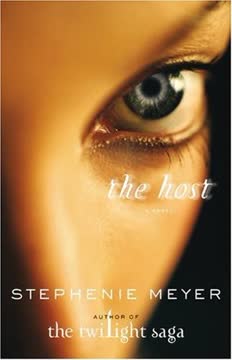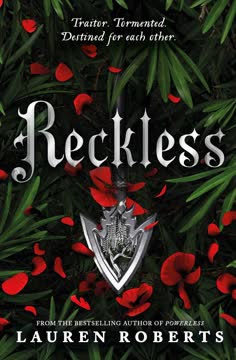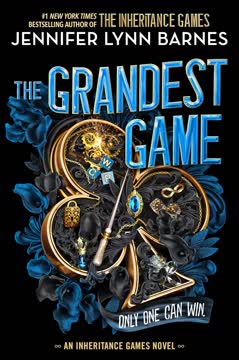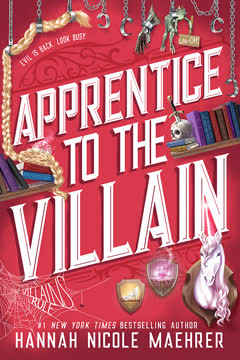Plot Summary
Waking in Pretty Perfection
Tally Youngblood wakes in New Pretty Town, her mind foggy from last night's party and the aftereffects of the operation that made her "pretty." The world is dazzling, her body flawless, but her thoughts are clouded and her emotions dulled. She struggles with the trivialities of pretty life—what to wear, how to fit in, and the constant pressure to be "bubbly," the pretties' word for excitement and engagement. Yet beneath the surface, Tally senses something is missing, a nagging emptiness that beauty and parties cannot fill. The city's perfection feels artificial, and Tally's memories of her past as an "ugly" are hazy, as if the operation has not only changed her face but also her mind.
Costume Crisis and Crim Votes
The day's challenge is a semiformal party, but the rules change: now it's a costume bash, and Tally must impress the Crims, a clique of daring pretties, to be voted in. With her best friend Shay, Tally scrambles to invent a costume that will stand out. The pressure is intense—acceptance by the Crims means status and belonging, but one veto can shut her out. The frivolity of the task masks deeper anxieties about identity and authenticity. Tally's struggle to choose a costume becomes a metaphor for her struggle to define herself in a world obsessed with surface and conformity.
Shay's Glittering Eyes
Shay, Tally's closest friend, arrives with breakfast and a new cosmetic "surge"—tiny rubies implanted in her eyes, arranged like a backward clock. The girls joke and bond, but Tally's careless comment about the surge nearly wounds Shay, exposing the fragility of their friendship and the constant need for validation in pretty society. The moment is saved by laughter, but the encounter highlights how even friendships are shaped by the city's obsession with appearance and novelty. Shay's rebellious spirit and willingness to push boundaries hint at deeper unrest beneath her pretty exterior.
Bubbly Breakfast and Old Bonds
Over a decadent breakfast, Tally and Shay reminisce about their days as "uglies" and the wild adventures they shared. The conversation is light, but memories of the Smoke—a rebel outpost where people lived without surgery—linger in the air. Tally's longing for authenticity and connection is palpable, even as she tries to embrace her new life. The arrival of Peris and Fausto, fellow Crims, brings laughter and camaraderie, but also a reminder of the social games and hierarchies that dominate pretty life. The bonds of friendship are both a comfort and a source of anxiety.
The Smokey Sweater Decision
Searching for the perfect costume, Tally and her friends stumble upon her old, hand-knit sweater from the Smoke. The sweater, rough and imperfect, carries the scent of campfires and rebellion. Inspired, the group decides to dress as "Smokies" for the party—a daring, criminal choice that both thrills and unsettles Tally. The decision is loaded with irony: they are play-acting at being rebels, even as the real Smoke has been destroyed, partly because of Tally's own actions. The sweater becomes a symbol of lost innocence and the tension between conformity and resistance.
Valentino Mansion's Masquerade
The group arrives at Valentino Mansion, the city's oldest and most prestigious party venue, dressed in their Smokey costumes. The mansion is a riot of color and creativity, filled with pretties in elaborate disguises. The atmosphere is electric, but Tally feels out of place, her costume a reminder of a world that no longer exists. The party is both exhilarating and alienating, a microcosm of pretty society's obsession with spectacle and status. Tally's nerves mount as she anticipates the Crims' vote, her sense of belonging hanging in the balance.
Shadows of Special Circumstances
Amid the revelry, Tally becomes aware of a masked figure in a gray silk costume, lurking at the edges of the party. The costume is unmistakable: an agent of Special Circumstances, the city's secret police. The sight triggers a wave of anxiety and fragmented memories—Tally's past encounters with the Specials, her betrayal of the Smoke, and the price of her own transformation. The figure's presence is both a threat and a reminder of the city's hidden mechanisms of control. Tally's sense of safety and self is shaken.
The Crims' Daring Entrance
Peris and Fausto make a dramatic entrance, dressed in bungee jackets and fake flames, reenacting one of Tally's legendary "ugly" exploits. Their performance is met with laughter and admiration, reinforcing the Crims' reputation for daring and creativity. The group's Smokey costumes are a hit, and Tally feels a surge of pride and relief. Yet the celebration is tinged with unease—the line between play-acting and reality is thin, and the specter of Special Circumstances looms in the background. The party becomes a stage for both rebellion and conformity.
Tally's Haunted Memories
As the night unfolds, Tally is haunted by memories of the Smoke and her role in its destruction. The party's frivolity contrasts sharply with the pain and loss she carries inside. Her mind, altered by the pretty operation, struggles to hold onto the truth of what happened. The city's beauty and comfort are seductive, but Tally cannot escape the sense that something vital has been lost. Her internal conflict intensifies, setting the stage for a deeper awakening.
The Masked Lurker
The masked figure continues to shadow Tally, moving with predatory grace. Tally's paranoia grows—she cannot tell if the figure is real or a hallucination, a single person or a group. The presence of the Special is a constant reminder of the city's surveillance and the consequences of dissent. Tally's fear and confusion mount, pushing her to question the reality of her experiences and the trustworthiness of her own mind. The party's glittering surface conceals a web of secrets and threats.
Bubbly or Bogus?
Tally grapples with the pressure to be "bubbly," to perform happiness and excitement for the approval of her peers. The city's language and rituals are designed to suppress critical thought and enforce conformity. Tally's moments of doubt and discomfort are dismissed as "bogus," unworthy of attention. Yet beneath the surface, a desire for authenticity and meaning persists. The struggle to reconcile her true self with the demands of pretty society becomes a central conflict, driving Tally toward a breaking point.
The Vote for Belonging
The Crims gather to vote on Tally's membership, the outcome uncertain. The ritual is both a game and a test of loyalty, a way to enforce group norms and exclude outsiders. Tally's fate depends on her ability to perform, to convince the others that she is "bubbly" enough to belong. The vote is a microcosm of the city's larger system of control, where acceptance is conditional and identity is always at risk. Tally's anxiety peaks as she waits for the verdict.
Shay's Secret Rebellion
Shay's rebellious streak becomes more pronounced—she hints at secret meetings and forbidden knowledge, drawing Tally into a web of intrigue. Shay's dissatisfaction with pretty life mirrors Tally's own, but she is bolder, more willing to challenge the system. Their friendship is tested as Shay pushes Tally to question the city's rules and seek out the truth. The seeds of rebellion are sown, setting the stage for a confrontation with authority.
Zane's Dangerous Charisma
Zane, the charismatic leader of the Crims, takes an interest in Tally. His charm and intelligence set him apart from the other pretties, and he becomes both a mentor and a romantic interest. Zane shares Tally's doubts about the pretty operation and introduces her to the possibility of resistance. Together, they begin to plot a way to break free from the city's control, risking everything for a chance at real freedom. Zane's influence is both inspiring and dangerous, drawing Tally deeper into the world of rebellion.
The Cure's Temptation
Shay and Zane reveal the existence of a "cure" for the pretty operation's brain lesions—the source of the city's enforced docility. The cure is risky and untested, but it offers the hope of reclaiming their true selves. Tally is torn between fear and longing, the desire for safety and the need for authenticity. The decision to take the cure is a leap of faith, a rejection of the city's values and a step toward self-determination. The stakes are high, and the consequences uncertain.
Breaking the Pretty Mind
Tally and Zane take the cure, enduring pain and confusion as their minds begin to clear. The process is harrowing, but the result is a newfound clarity and intensity of feeling. The world is sharper, more vivid, and the lies of pretty society are exposed. Tally's sense of self is restored, but she is now a target for the city's enforcers. The transformation is both liberating and terrifying, a rebirth that comes at great cost.
Escape and Betrayal
With the Specials closing in, Tally, Zane, and a small group of rebels attempt to escape New Pretty Town. The city's surveillance and control are nearly absolute, and betrayal lurks at every turn. The escape is fraught with danger, and not everyone makes it out. Tally is forced to confront the limits of trust and the price of resistance. The journey is both a physical and emotional ordeal, testing the bonds of friendship and love.
Becoming Special
In the aftermath of the escape, Tally is captured by Special Circumstances. Faced with a new and even more invasive operation, she must decide whether to submit or fight. The prospect of becoming "Special"—a superhuman enforcer of the city's will—is both a threat and a temptation. Tally's struggle is no longer just about beauty or conformity, but about the very nature of freedom and identity. The story ends on a note of uncertainty, as Tally prepares to face her greatest challenge yet.
Characters
Tally Youngblood
Tally is the protagonist, a girl transformed by the city's beauty operation but haunted by memories of her past. Her journey is one of self-discovery, as she struggles to reconcile her desire for acceptance with her longing for authenticity. Tally's relationships—with Shay, Zane, and the Crims—are central to her development, forcing her to confront the costs of conformity and the risks of rebellion. Psychologically, Tally is torn between fear and courage, loyalty and guilt. Her evolution from passive participant to active resister is marked by pain, loss, and moments of profound clarity. Tally's story is a meditation on the meaning of beauty, the power of choice, and the possibility of change.
Shay
Shay is Tally's best friend and the spark that ignites much of the story's conflict. Bold, creative, and dissatisfied with pretty life, Shay challenges Tally to question the city's rules and seek out the truth. Her rebelliousness is both inspiring and dangerous, leading her to take risks that others fear. Shay's relationship with Tally is complex—marked by loyalty, jealousy, and moments of betrayal. Psychologically, Shay is driven by a need for freedom and authenticity, but her actions often have unintended consequences. As the story unfolds, Shay's choices force Tally to confront her own values and the limits of friendship.
Zane
Zane is the leader of the Crims and Tally's love interest. Intelligent, charming, and deeply skeptical of the city's system, Zane becomes a mentor and partner in rebellion. His willingness to challenge authority and seek out the cure for the pretty operation's brain lesions makes him a catalyst for change. Zane's relationship with Tally is intense and transformative, pushing both characters to grow and take risks. Psychologically, Zane is driven by a desire for truth and autonomy, but his actions are often reckless. His fate is intertwined with Tally's, and his influence shapes the course of the story.
Peris
Peris is Tally's childhood friend and a member of the Crims. Once a partner in mischief, Peris has embraced pretty life and the city's values. His relationship with Tally is nostalgic and affectionate, but also strained by their diverging paths. Psychologically, Peris represents the comfort and safety of conformity, but also its limitations. His presence in the story serves as a reminder of what Tally stands to lose—and what she must leave behind—in her quest for authenticity.
Fausto
Fausto is a member of the Crims, known for his humor and easygoing nature. He provides levity in tense moments and helps to balance the group's dynamics. Fausto's loyalty to his friends is unwavering, but he is less willing than others to challenge the status quo. Psychologically, Fausto is content with pretty life, but his friendship with Tally and the others draws him into the story's conflicts. He serves as a foil to the more rebellious characters, highlighting the diversity of responses to the city's system.
Dr. Cable
Dr. Cable is the head of Special Circumstances, the city's secret police. Cold, calculating, and ruthless, she embodies the system's commitment to order and conformity. Dr. Cable's relationship with Tally is adversarial, marked by manipulation and coercion. Psychologically, Dr. Cable is driven by a belief in the necessity of control, viewing individuality as a threat to stability. Her presence in the story is a constant reminder of the dangers of dissent and the power of the system.
Special Circumstances Agent (Masked Lurker)
The masked agent who shadows Tally at the party represents the city's omnipresent surveillance and the threat of punishment for rebellion. The agent's identity is ambiguous, heightening the sense of paranoia and uncertainty. Psychologically, the agent functions as an externalization of Tally's internal fears and the ever-present danger of being caught. The agent's presence drives much of the story's tension and underscores the stakes of resistance.
The Crims (Clique)
The Crims are a clique of pretties known for their daring and creativity. Membership is highly coveted, and their approval is a marker of social success. The group's rituals and hierarchies mirror the larger dynamics of pretty society, with acceptance contingent on conformity to group norms. Psychologically, the Crims represent both the allure and the limitations of belonging, forcing Tally to navigate the tension between individuality and acceptance.
The Smokies (Absent Rebels)
The Smokies are the inhabitants of the Smoke, a rebel outpost destroyed by the city. Though absent from the story's present, their legacy looms large, shaping Tally's memories and sense of guilt. The Smokies represent the possibility of an alternative to pretty society, a life defined by authenticity and self-determination. Psychologically, they are a source of inspiration and regret, driving Tally's quest for redemption.
New Pretty Town
New Pretty Town is both a physical location and a character in its own right. Its beauty and comfort are seductive, but its rules and surveillance are suffocating. The city's design enforces conformity and suppresses dissent, shaping the lives and minds of its inhabitants. Psychologically, New Pretty Town represents the tension between safety and freedom, comfort and authenticity.
Plot Devices
The Pretty Operation
The pretty operation is the central plot device, transforming citizens into physically perfect, docile pretties. The surgery's true purpose is revealed to be the implantation of brain lesions that suppress critical thought and enforce conformity. This device drives the story's conflict, as characters struggle to reclaim their autonomy and resist the city's control. The operation's effects are both physical and psychological, shaping the characters' perceptions, emotions, and relationships.
The Cure
The existence of a cure for the pretty operation's brain lesions introduces the possibility of resistance and change. The cure is risky and untested, requiring characters to make difficult choices and face the consequences of their actions. The device serves as a catalyst for the story's climax, forcing Tally and others to confront the limits of their courage and the meaning of freedom.
The Crims' Vote
The ritual of voting new members into the Crims serves as a microcosm of the city's larger system of control. Acceptance is conditional, and the threat of exclusion enforces conformity. The vote creates narrative tension, as Tally's fate—and her sense of self—hangs in the balance.
Special Circumstances
Special Circumstances, the city's secret police, function as both a plot device and a symbol of the system's power. Their presence drives much of the story's tension, forcing characters to navigate a world of constant surveillance and the threat of punishment for dissent.
Costume and Masquerade
The use of costumes and masquerades throughout the story highlights the tension between appearance and reality, conformity and individuality. Characters are constantly performing for one another, masking their true selves in order to fit in or rebel. The device underscores the story's exploration of authenticity and the costs of living in a society obsessed with surface.
Analysis
Scott Westerfeld's "Pretties" is a sharp, emotionally resonant exploration of identity, conformity, and resistance in a society obsessed with beauty and control. Through Tally's journey, the novel interrogates the costs of perfection—how the pursuit of surface-level happiness can erode authenticity, critical thought, and genuine connection. The pretty operation, with its dual promise of beauty and enforced docility, serves as a chilling metaphor for the ways societies can manipulate individuals for the sake of order. The story's emotional arc is driven by Tally's struggle to reclaim her autonomy and sense of self, even as she risks losing everything she values. The friendships, betrayals, and moments of rebellion are rendered with nuance, inviting readers to question the systems that shape their own lives. Ultimately, "Pretties" is a call to embrace imperfection, to seek out truth and meaning even in the face of overwhelming pressure to conform. Its lessons are as relevant today as ever, challenging us to look beyond the surface and fight for our right to think, feel, and choose for ourselves.
Last updated:
Review Summary
Pretties receives mixed reviews, with some praising its world-building and engaging plot, while others criticize its repetitive language and character development. Many readers find Tally's journey from Pretty to rebel intriguing, but some are frustrated by the love triangle and "pretty" slang. The book's exploration of beauty standards and societal control resonates with some readers, while others feel it lacks depth. Despite criticisms, many fans of the Uglies series continue to be invested in Tally's story and the dystopian world Westerfeld has created.
Uglies Series
Similar Books
Download PDF
Download EPUB
.epub digital book format is ideal for reading ebooks on phones, tablets, and e-readers.
